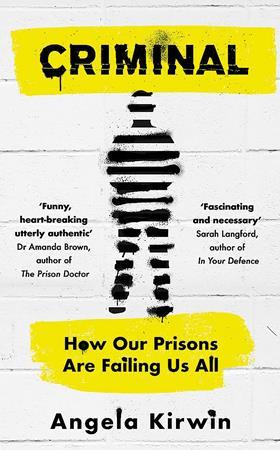More compelling arguments for penal reform
Criminal: How Our Prisons Are Failing Us All
Angela Kirwin
£18.99, Trapeze
★★★★✩
The former home secretary Douglas Hurd said prisons are ‘expensive places for making bad people worse’. Author and campaigner Arthur Conan Doyle wrote of a felon in one of his stories: ‘Send him to jail now, and you make him a jail-bird for life.’ The message that prisons are costly and do not work is not new. Indeed, several books deal with the subject well, but Criminal: How Our Prisons Are Failing Us All stands out.
It makes a compelling case for more investment, better training and sending fewer offenders to jail. This is a message much of the public and media do not agree with; many want offenders to be locked up for a long time (unless of course, it is them or their relatives). What we do with offenders and where we put them is a major issue for society. The vast majority of prisoners are not locked away forever and therefore society has to do something positive with them. We need to develop well-funded community sentences that are punitive, constructive and win the confidence of those who do not like offenders getting a mere ‘slap on the wrist’.

This readable and intelligent book compares policy and attitudes in this country with what has been tried and works abroad, especially in Norway, of which the author has some knowledge. Norway, like many other countries, spends more on prisons, sends fewer offenders to prison and trains staff for far longer. We detain too many people including those who are mentally ill, immigrants, elderly or disabled. The prison population is supplied by an education system which fails some people, as does the care system. In Britain, there are also too many people in prison who are innocent. Of the nearly 73,000 people remanded into custody annually, more than 35,000 are either acquitted or given a non-custodial sentence.
The author argues that the pandemic was a missed opportunity. The original plan was to release more prisoners but this did not happen. Only 275 were freed and according to the book the plan was quietly shelved. Although the criticisms of the system are ones that lawyers are very familiar with, the author argues her case very well with examples from offender case histories.
This is an excellent book and ends with an appendix which advises readers on what they can do – such as give time and money, campaign and volunteer.
David Pickup is a partner at Pickup & Scott Solicitors, Aylesbury































No comments yet